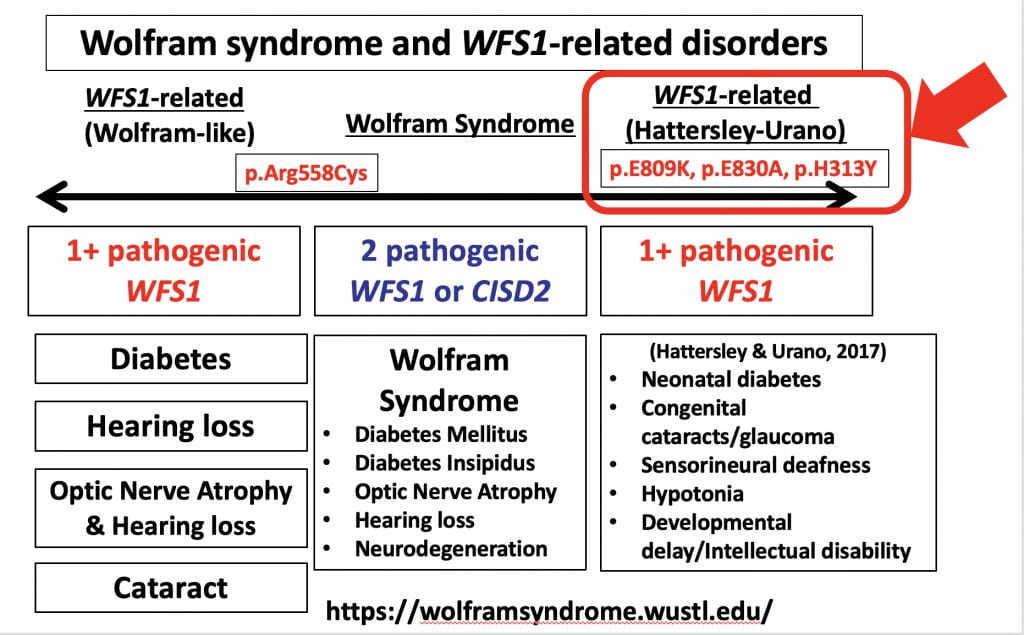As you know, we all have two copies of the Wolfram syndrome 1 (WFS1) gene, one from our mother and one from our father. Patients with Wolfram syndrome have two mutated copies of the WFS1 gene, and their parents have one mutated copy and one normal copy. They are carriers.
Dr. Hattersley and I identified a distinct group of patients who have only one mutated copy of the WFS1 gene and have multiple medical issues (https://diabetesjournals.org/diabetes/article/66/7/2044/39930/Dominant-ER-Stress-Inducing-WFS1-Mutations). Because there is no name for this medical condition, I would tentatively call this WFS1-related disorder, Hattersley-Urano subtype. Their parents are not carriers. That means a WFS1 gene mutation occurred in an egg or a sperm of one of the parents or in the fertilized egg itself. These patients have neonatal diabetes (very early-onset diabetes), profound hearing loss at birth, congenital cataracts/glaucoma, hypotonia, and developmental delay/intellectual disability. This syndrome is associated with three different variants in the WFS1 gene. These are WFS1 c.2425G>A (p.Glu809Lys), c.2489A>C (p.Glu830Ala), and c.937C>T (p.His313Tyr). We have recently identified a patient in our area who has one of these three variants, and Dr. Marwan Shinawi, Dr. Bess Marshall, Dr. Marina Litvin, Dr. Robert Bucelli, and I have been following the patient in our clinics at Washington University Medical Center/BJC. We also have a study patient who carries one of these three variants in the longitudinal study run by Dr. Tamara Hershey. We recently identified another patient in Canada, and I have enrolled the patient in our study. I will discuss these three variants in my future blogs because I have a new idea for treating these patients.
Fumi Urano
